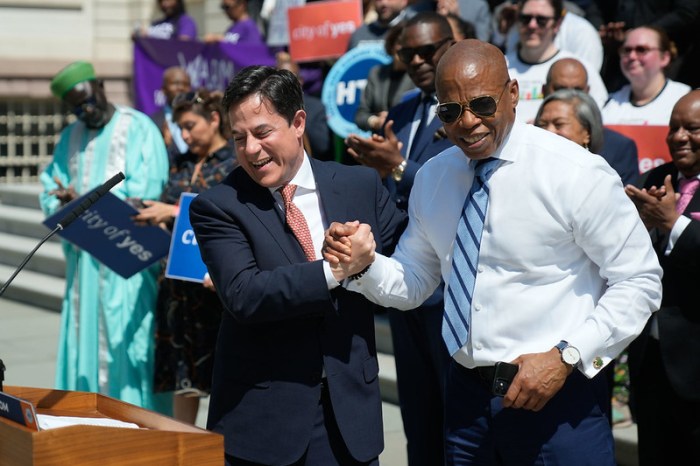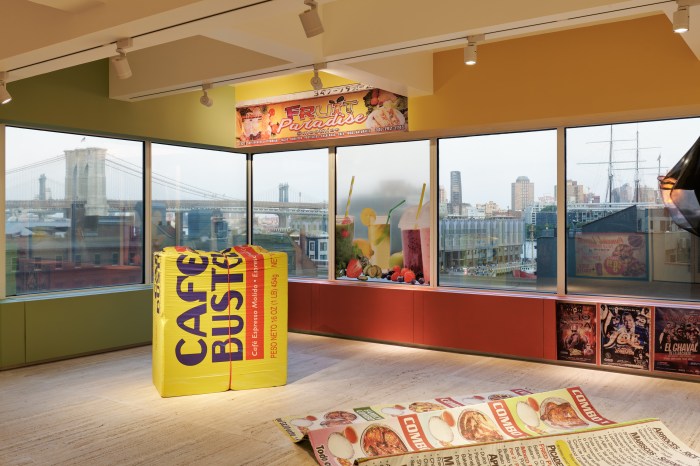In the days following President Donald Trump’s executive order restricting immigration from seven Muslim-majority countries, the business sector has responded. Some company CEOs were quick to release clearly negative statements, while others have more delicately navigated a complicated morass of consumer opinion, worker issues and White House access.
Technology companies, among the first to respond, are planning to meet on Tuesday to discuss filing an amicus brief in support of a lawsuit challenging Trump’s order, said a spokesman for GitHub, a company that makes software development tools, which is organizing the meeting.
Google, Airbnb and Netflix are among the companies invited to the meeting, a separate person familiar with the situation said.
Here are how leaders are responding, both in letters to employees and more general statements.
Apple: CEO Tim Cook expressed his opposition to the ban on Saturday via a letter sent to his global workforce. Nodding to the “employees at Apple who are directly affected by yesterday’s immigration order,” he also wrote, “I’ve heard from many of you who are deeply concerned about the executive order issued yesterday restricting immigration from seven Muslim-majority countries. I share your concerns. It is not a policy we support.”
Cook also made an obtuse Twitter post that same day, with an Abraham Lincoln quote that included, “With malice toward none; with charity for all.”
Amazon: CEO Jeff Bezos has gone farther than merely expressing his feeling about the ban: He told employees, in an email, that he is looking into legal challenges. The Washington Post, which is owned by Bezos, reported on Monday that company lawyers have declared support for Washington state’s attorney general, Bob Ferguson, in his lawsuit against the order. (Amazon is based in Seattle.) Bezos also wrote that the Amazon legal team is “working other legal options as well.”
Starbucks: Howard Schultz, CEO of the Seattle-grown company, made a strong statement in a letter to employees, underscored by the fact that the company posted the letter on its corporate website, not a move all have followed. Writing “with deep concern, a heavy heart and a resolute promise,” Schultz announced plans to hire 10,000 refugees “over five years in the 75 countries around the world where Starbucks does business.”
Reddit: The social platform’s co-founder Alexis Ohanian posted a letter on Reddit, in which he noted his immigrant roots as “the son of an undocumented immigrant from Germany and the great grandson of refugees who fled the Armenian Genocide.” The executive order, he wrote, is “deeply un-American.”
Late Monday, he tweeted: My father’s family were refugees & my mom was an undocumented immigrant. Without them, there’s no me & no @Reddit.
Tesla: Elon Musk, the founder of Tesla and SpaceX who has a direct line to the president as a member of his economic advisery team, took to Twitter to express a more tentative sentiment than many other CEOs. He expressed disapproval but not a flat-out rejection. On Saturday, in a series of tweets, Musk, who was born in South Africa, wrote: “The blanket entry ban on citizen from certain primarily Muslim countries is not the best way to address the country’s challenges.”
Ford Motor Co.: The first major automotive company to speak out, Ford’s executive chairman Bill Ford and president and CEO Mark Fields shared a statement on Monday with employees: “Respect for all people is a core value of Ford Motor Co., and we are proud of the rich diversity of our company here at home and around the world.” The two were clear in their opposition to the ban, saying, “we do not support this policy or any other that goes against our values as a company.”
Microsoft: In a letter shared on Linkedin, CEO Satya Nadella said that, “As an immigrant and as a CEO, I’ve both experienced and seen the positive impact that immigration has on our company, for the country, and for the world. We will continue to advocate on this important topic.”
Nadella also posted an email sent to employees by Microsoft lawyer Brad Smith, some of which addressed questions citizens of the seven banned countries may have. It also states: “We believe that immigration laws can and should protect the public without sacrificing people’s freedom of expression or religion. And we believe in the importance of protecting legitimate and law-abiding refugees whose very lives may be at stake in immigration proceedings.”
Coca-Cola: Another giant with global reach, Coca-Cola Co. also flat-out opposes Trump’s ban. “Coca-Cola Co. is resolute in its commitment to diversity, fairness and inclusion, and we do not support this travel ban or any policy that is contrary to our core values and beliefs,” CEO and chairman Muhtar Kent said in a statement.
Netflix: The CEO of Netflix, Reed Hastings, wrote an open post on Facebook on Saturday: “Trump’s actions are hurting Netflix employees around the world, and are so un-American it pains us all. Worse, these actions will make America less safe (through hatred and loss of allies) rather than more safe. A very sad week, and more to come with the lives of over 600,000 Dreamers here in a America under imminent threat. It is time to link arms together to protect American values of freedom and opportunity.”
Box: On Saturday, Box co-founder and CEO Aaron Levie tweeted: “On every level — moral, humanitarian, economic, logical, etc.– this ban is wrong and is completely antithetical to the principles of America.”
Nest: Founder Tony Fadell is letting his money do the talking. Following the lead of Chris Sacca, a Twitter investor, Fadell tweeted that people should send him receipts for donations made to the ACLU. “Triple your donation. Send your receipts to me too. I’ll match to $25k,” he said in a Jan. 29 reply to Sacca’s post of the day before. Sacca had written “The @aclu took Trump to court. Let’s stand with them” and offered to match donations.
With Reuters

































